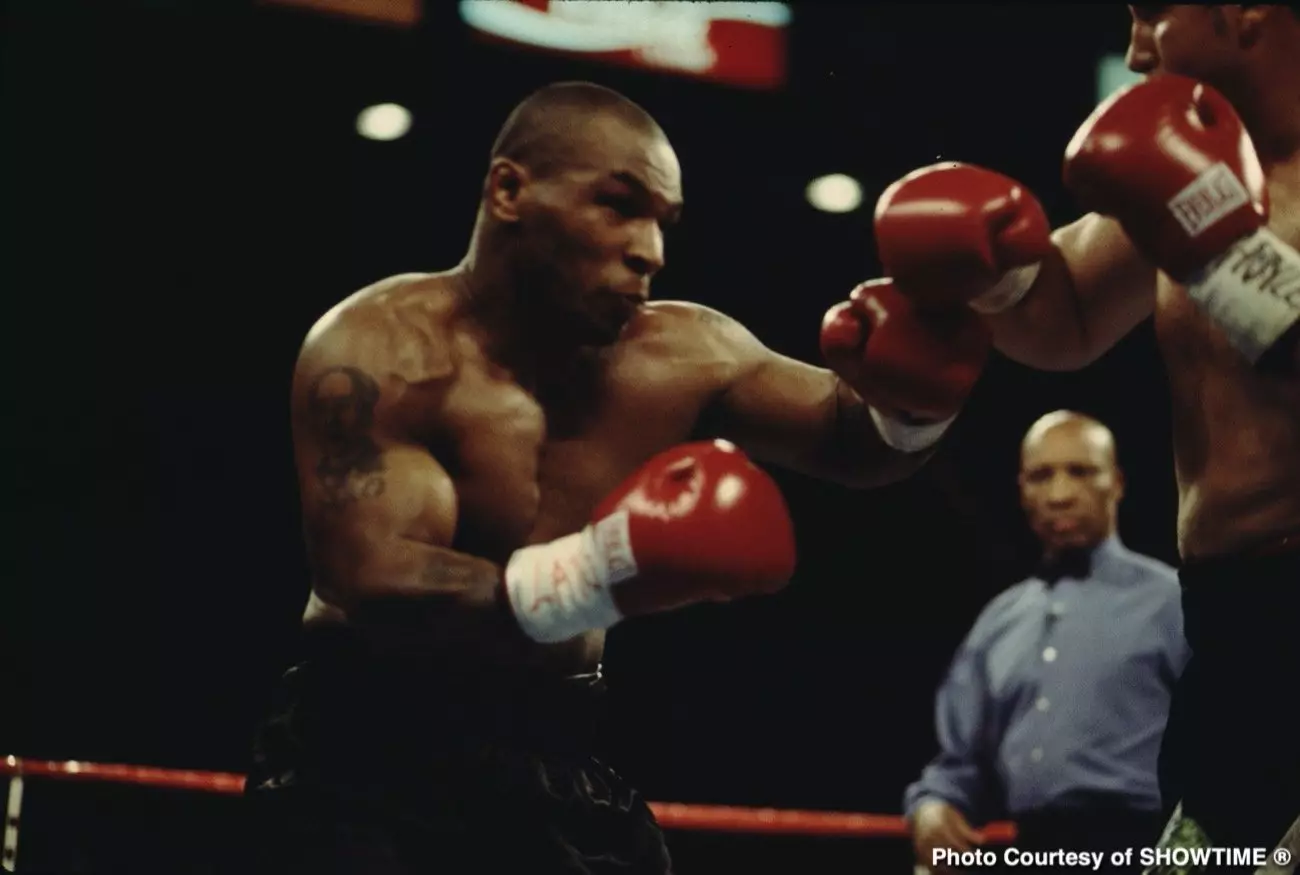Mike Tyson remains one of the most captivating figures in the world of boxing, often hailed as a prodigy whose raw power and blinding speed made him a formidable opponent in the ring. Even in discussions many years post-retirement, his influence in the sport is still palpable. Retirement has not dimmed the aura surrounding Tyson, and retired heavyweight champion George Foreman recognizes this, acknowledging Tyson’s exceptional attributes that seem almost alien compared to contemporary athletes. Tyson’s impressive record of 50 wins, 6 losses, and 44 knockouts emphasizes this prowess, making the prospect of witnessing him return to the ring—albeit against a much younger opponent—all the more tantalizing.
The upcoming fight against internet sensation Jake Paul, scheduled for an eight-round bout at Arlington’s AT&T Stadium, raises eyebrows and stirs discussions among boxing aficionados. Tyson, now 58, possesses skills and experience that younger fighters often lack. The question lingers—can Tyson transcend age and return to a semblance of his former glory, even under somewhat modified circumstances tailored for his age? Rounds have been shortened to two minutes, a contrast to the traditional three, seemingly an effort to conserve the legendary boxer’s energy and prolong the bout.
In stark contrast stands Jake Paul, a 27-year-old YouTube star-turned-boxer whose emergence in the sport has drawn both ire and intrigue. Critics protest Paul’s involvement in professional boxing, especially when matched against veterans like Tyson. He has made waves in the boxing world, leveraging his platform to secure bouts against prominent figures, but there are legitimate concerns about his opponent choices and the credibility of his rising career.
Paul has only faced one accomplished boxer, Tommy Fury, whom he lost to in February 2023 by split decision. This starkly contrasts Tyson’s extensive and illustrious history, making the upcoming fight not merely a clash of generations but also an unsettling juxtaposition of experience against youthful vigor. What complicates the narrative even further is that Paul has crafted an image and reputation through media savvy, promoting fights through hype rather than through traditional boxing credentials, something that many traditionalists view with skepticism.
The strategic game plan for Tyson is straightforward yet challenging: land decisive punches before fatigue takes its toll. The limited gas tank of the former champion poses a significant risk when matched against Paul, who, despite being relatively inexperienced, possesses the stamina of youth. With an unwavering desire to dominate, Paul has been relentless in training, accompanied by the distinct benefit of youth and athleticism. Everyone is acutely aware that time is not on Tyson’s side, and if he falters mentally or physically, the consequences could lead to a quick defeat.
Foreman’s praise of Tyson highlights the challenges in testing a fighter of such caliber against someone who has not endured the same battles or training regimens. Tyson’s dedication to training, despite the toll it takes on his body, emphasizes his unyielding hunger to compete; battling through injuries, exhaustion, and the realities of age adds to the romanticism surrounding this fight. Yet, the risks are palpable, questioning whether it is honorable or safe for a senior citizen to engage in a sport characterized by its physicality and danger.
The fight is emblematic of larger ethical questions surrounding boxing as it intersects with entertainment. As retired athletes are approached for lucrative bouts with less experienced fighters like Paul, one must wonder about the implications for boxing’s integrity. Tyson’s situation raises an urgent discussion about the responsibilities of promoters and organizers, especially when considering the physical demands placed on aging fighters in an effort to capitalize on their fame.
For Tyson, this match represents not just a chance to reclaim lost glory, but an opportunity to showcase that the spirit of boxing transcends age. However, viewing it as a spectacle risks trivializing the sport, reducing celebrated legacies to mere entertainment fodder. The outcome—regardless of who wins—will undoubtedly spark a broader discourse about age in combat sports, legacy, and the ethical implications of matchmaking in an era where media and celebrity reign supreme over genuine athletic prowess.
The impending Mike Tyson versus Jake Paul confrontation is bound to evoke intense interest for various reasons, not least the combined elements of strategy, experience, and the ever-relevant conversation surrounding the evolution of boxing and its ethical dimensions. As fans anticipate the spectacle, the essence of sport, in all its purity and challenge, remains a timeless theme woven through this fascinating storyline.

